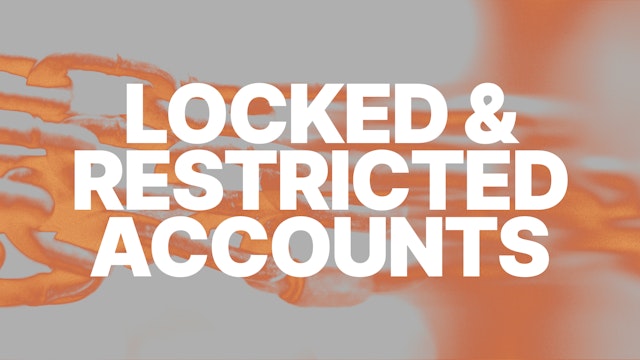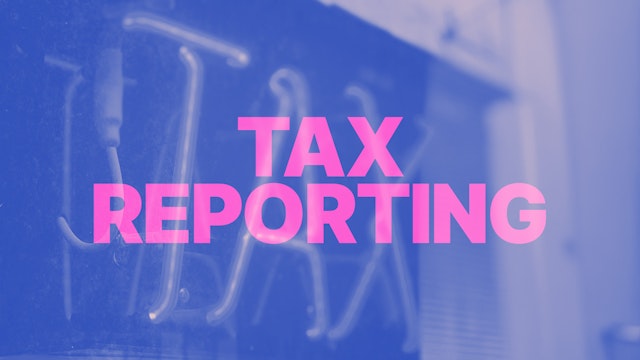Crypto Tax UK: Understanding Capital Gains
Wondering how to calculate your capital gains on your crypto activities for this tax year? Here's some information to read first.
In this article...
- Wondering how to calculate capitals gains on your crypto activities?
- There are a few things you should know before you proceed.
- Here's how to work out your tax rate.

Crypto tax UK: Yes it is that time of the year. Ugh! But let’s push on. One of the big questions is, “How do I calculate my capital gains?”
When you sell or exchange assets like cryptocurrencies, stocks, or other investments, any profit you make is called a capital gain.
The UK tax authority (HMRC) groups all these gains together when calculating your taxes, except for property, which is taxed differently.
Here’s the basic formula:
Total Gains – Total Losses = Net Capital Gains
An example of calculating capital gains
Jake decides to invest in two cryptocurrencies: Snaccident and Floopcoin.
Initial investment
-He buys £4,000 worth of Snaccident at £200 each. -He also spends £3,000 on Floopcoin at 15p per coin.
First sale
Six months later, Jake sells half his Snaccident at £250 each, earning £2,500.
His gain from this sale is: £2,500 (sale price) – £2,000 (original cost) = £500.
Market downturn
Unfortunately, the market crashes. Jake sells the rest of his Snaccident at £150 each for £1,500 and half his Floopcoin at 10p per coin for £1,000.
-Snaccident loss: £1,500 (sale price) – £2,000 (cost) = -£500. -Floopcoin loss: £1,000 (sale price) – £1,500 (cost) = -£500.
Net result for the year
-Total gains: £500. -Total losses: £1,000. -Net capital loss: -£500.
Since Jake made a net loss, he doesn’t owe any capital gains tax this year. But he can carry forward his £500 loss to offset future gains.
Next year’s surge
A year later, Floopcoin’s price skyrockets to 50p per coin. Jake sells the remaining coins for £5,000.
His gain is: £5,000 (sale price) – £1,500 (cost) = £3,500.
After applying last year’s loss: £3,500 – £500 = £3,000 net gain.
Now, Jake will need to pay capital gains tax on £3,000.
What’s my tax rate?
Your capital gains tax rate depends on your total taxable income and how much profit you’ve made. Here’s a quick breakdown for the 2025/2026 tax year.
Annual Exempt Amount: £3,000
You won't pay CGT on total gains up to this amount.
-
No tax: If your total taxable income is below £12,570.
-
18% tax rate: If your income is between £12,570 and £50,270.
-
24% tax rate: If your income exceeds £50,270.
These rates apply to gains above the annual exempt amount and are determined based on your total taxable income.
Special rules you should know
Tax-free allowance
Everyone gets a £3,000 tax-free allowance for capital gains in 2025/26. Couples who are married or in a civil partnership can combine their allowances, giving them up to £6,000. Unused allowances don’t roll over to the next year, so use them or lose them!
Same-day and 30-day rules
To prevent people from gaming the system by selling and quickly rebuying assets, HMRC has two rules.
-Same-day rule: If you buy and sell the same asset within 24 hours, the transaction is treated separately.
-30-day rule: If you repurchase the asset within 30 days, the cost basis is adjusted accordingly.
The Same Day Rule: Definition and Application
The same day rule stipulates that when an individual buys and sells the same type of asset, such as cryptocurrency or shares, on the same calendar day, the disposal is matched with the acquisitions made on that same day for the purposes of calculating Capital Gains Tax (CGT).
This rule is designed to prevent taxpayers from exploiting same-day transactions to manipulate their CGT liability, ensuring that tax obligations are calculated accurately and fairly.
Example 1
Consider an individual who sells 100 units of a cryptocurrency, ABC, on 5 April and subsequently purchases 100 additional units of ABC on the same day. For CGT purposes, the sale of the 100 units is matched with the purchase made on 5 April, prior to considering any other acquisitions.
Example 2
Emily owns 20 Waffletokens she bought for £1,000 (£50 each). She sells 10 for £800 and buys 5 back for £400 within 30 days.
-Cost basis for the 5 repurchased coins: £400 ÷ 5 = £80 each.
-Remaining 5 coins retain their original cost basis of £50 each.
Donations
If you donate crypto to a registered charity, it’s not taxed, and you can claim the donation as a deduction on your taxes.
Lost keys
Losing access to your wallet because you misplaced your private key isn’t considered a capital loss. However, if you can prove the coins are completely unrecoverable, you might be able to claim a negligible value loss.
Theft or fraud
If someone steals your crypto or you fall victim to a scam, HMRC doesn’t count this as a capital loss. But if you paid for worthless cryptoassets, you might qualify for a negligible value claim.
Tools to help you stay on track
Keeping track of your crypto transactions can get complicated. To simplify things, consider using apps like CryptoTaxCalculator, Koinly, or CoinTracker. These tools automatically calculate your gains, losses, and tax obligations. And you can get great discounts on these crypto tax software apps, see here for more details.
Crypto tax time: Things to keep in mind
-Track everything. Keep records of every buy, sell, and trade.
-Use your allowance. Don’t let your £3,000 tax-free allowance go to waste.
-Plan ahead. Understand the same-day and 30-day rules to avoid surprises.
-Seek help. If you’re unsure, consult a tax professional or use a crypto tax app. -By staying organised and informed, you can manage your crypto taxes confidently and avoid unnecessary headaches.

Suggested Articles

Your CoinJar Account is Restricted: Why It Happens and How to Fix It
Resolution steps: A clear guide on how to verify your identity and contact support to regain access.Read more
Exporting Your Trading and Transaction History for Tax Purposes
A step-by-step guide for CoinJar customers: How to export your trading and transaction history for the tax year.Read more
Forgotten Password? How to Recover Your CoinJar Account
Occasionally, our customers can forget their password. Here's what to do next if this happens to you.Read moreBrowse by topic
Standard Risk Warning: The above article is not to be read as investment, legal or tax advice and it takes no account of particular personal or market circumstances; all readers should seek independent investment advice before investing in cryptocurrencies.
The article is provided for general information and educational purposes only, no responsibility or liability is accepted for any errors of fact or omission expressed therein. Past performance is not a reliable indicator of future results. We use third party banking, safekeeping and payment providers, and the failure of any of these providers could also lead to a loss of your assets.
We recommend you obtain financial advice before making a decision to use your credit card to purchase cryptoassets or to invest in cryptoassets.
Capital Gains Tax may be payable on profits.
CoinJar's digital currency exchange services are operated in the UK by CoinJar UK Limited (company number 8905988), registered by the Financial Conduct Authority as a Cryptoasset Exchange Provider and Custodian Wallet Provider in the United Kingdom under the Money Laundering, Terrorist Financing and Transfer of Funds (Information on the Payer) Regulations 2017, as amended (Firm Reference No. 928767).
In the UK, it's legal to buy, hold, and trade crypto, however cryptocurrency is not regulated in the UK. It's vital to understand that once your money is in the crypto ecosystem, there are no rules to protect it, unlike with regular investments.
You should not expect to be protected if something goes wrong. So, if you make any crypto-related investments, you're unlikely to have recourse to the Financial Services Compensation Scheme (FSCS) or the Financial Ombudsman Service (FOS) if something goes wrong.
The performance of most cryptocurrency can be highly volatile, with their value dropping as quickly as it can rise. Past performance is not an indication of future results.
Remember: Don't invest unless you're prepared to lose all the money you invest. This is a high-risk investment and you should not expect to be protected if something goes wrong. Take 2 mins to learn more.
UK residents are required to complete an assessment to show they understand the risks associated with what crypto/investment they are about to buy, in accordance with local legislation. Additionally, they must wait for a 24-hour "cooling off" period, before their account is active, due to local regulations. If you use a credit card to buy cryptocurrency, you would be putting borrowed money at a risk of loss.
We recommend you obtain financial advice before making a decision to use your credit card to purchase cryptoassets or to invest in cryptoassets.
Specific risks associated with stablecoins: There is a risk that any particular stablecoin may not hold their value as against any fiat currency; or may not hold their value as against any other asset. Stablecoins carry the following risks:
Depegging events: Depegging events may occur with stablecoins that fail to maintain adequate controls and risk mitigants. A depegging event is when the value of the stablecoin no longer matches the value of the underlying asset. This could result in a loss of some or all of your investment.
• Counterparty risk: Counterparty risk arises when an asset is backed by collateral, involving a third party maintaining the collateral, which introduces risk if the party becomes insolvent or fails to maintain it.
• Redemption risk: Redemption risk refers to the possibility that an asset's ability to be redeemed for underlying collateral may not be as anticipated during market fluctuations or operational issues.
• Collateral risk: Collateral risk refers to the possibility of the collateral's value declining or becoming volatile, potentially impacting the asset's stability, particularly when it is another crypto-asset.
• Exchange rate fluctuations: Stablecoins, often denominated in US Dollars, expose investors to fluctuations in the USD:GBP exchange rate.
• Algorithmic risk: Algorithm risk refers to the possibility of an asset's stability being compromised due to unexpected failure or behaviour of the underlying algorithm, potentially leading to loss of value.
Specific risks associated with meme coins: 'Meme coins' (e.g. DOGE, SHIB, PEPE) are crypto-assets whose value is driven primarily by community interest and online trends. Meme coins carry the following risks:
• Volatility risk: Meme coins can have extreme price volatility, often experiencing rapid and unpredictable price fluctuations within short periods. The value of meme coins can be influenced by social media trends, celebrity endorsements, and other factors unrelated to traditional investment fundamentals.
• Lack of utility: Meme coins often lack intrinsic value or utility, being primarily driven by community interest, online trends, and speculative trading.
• Market manipulation: Meme coins may be susceptible to increased risk of market manipulation including 'pump-and-dump' schemes, where the price is artificially inflated followed by a sudden crash.
• Lack of transparency: Meme coins may have limited available information about their development teams, goals, and financials. This lack of transparency can make it challenging to assess the credibility and potential of a meme coin accurately.
• Emotional investing: Meme coins often garner strong emotional reactions from investors, leading to impulsive decisions. Emotional trading activity can amplify losses. Specific risks associated with DeFi tokens
Decentralised Finance (or 'DeFi') tokens (e.g. UNI, AAVE) are crypto-assets linked to financial applications and protocols built on decentralised blockchain technology.
DeFi tokens carry the following risks:Smart contract risk: DeFi relies heavily on smart contracts. Even a minor coding error or oversight can lead to a contract being exploited, potentially resulting in significant losses for DeFi tokens.
Regulatory risk: DeFi operates in a decentralised manner, often without intermediaries or financial crime controls. Regulatory bodies across jurisdictions might introduce new regulations impacting the use, value, or legality of certain DeFi protocols or assets. Rug-pulls / Exit scams: Some DeFi projects might be launched by anonymous or pseudonymous teams, increasing the risk of "rug pulls" where developers abandon the project and withdraw funds, leaving investors with worthless tokens.
Data/oracle risk: DeFi protocols often rely on external data sources or 'oracles. Manipulation or inaccuracies in these data sources can lead to unintended financial outcomes within the protocols.
Protocol complexity: The complexity of some DeFi protocols can make it difficult for average users to fully understand the mechanisms and associated risks.
If you use a credit card to buy cryptocurrency, you would be putting borrowed money at a risk of loss. We recommend you obtain financial advice before making a decision to use your credit card to purchase cryptoassets or to invest in cryptoassets.
Your information is handled in accordance with CoinJar’s Privacy Policy.
Cryptoassets traded on CoinJar UK Limited are largely unregulated in the UK, and you are unable to access the Financial Service Compensation Scheme or the Financial Ombudsman Service.
We use third party banking, safekeeping and payment providers, and the failure of any of these providers could also lead to a loss of your assets.
We recommend you obtain financial advice before making a decision to use your credit card to purchase cryptoassets or to invest in cryptoassets. Capital Gains Tax may be payable on profits.
CoinJar’s digital currency exchange services are operated in the UK by CoinJar UK Limited (company number 8905988), registered by the Financial Conduct Authority as a Cryptoasset Exchange Provider and Custodian Wallet Provider in the United Kingdom under the Money Laundering, Terrorist Financing and Transfer of Funds (Information on the Payer) Regulations 2017, as amended (Firm Reference No. 928767).
Apple Pay and Apple Watch are trademarks of Apple Inc. Google Pay is a trademark of Google LLC.
This site is protected by reCAPTCHA and the Google Privacy Policy and Terms of Service apply.

